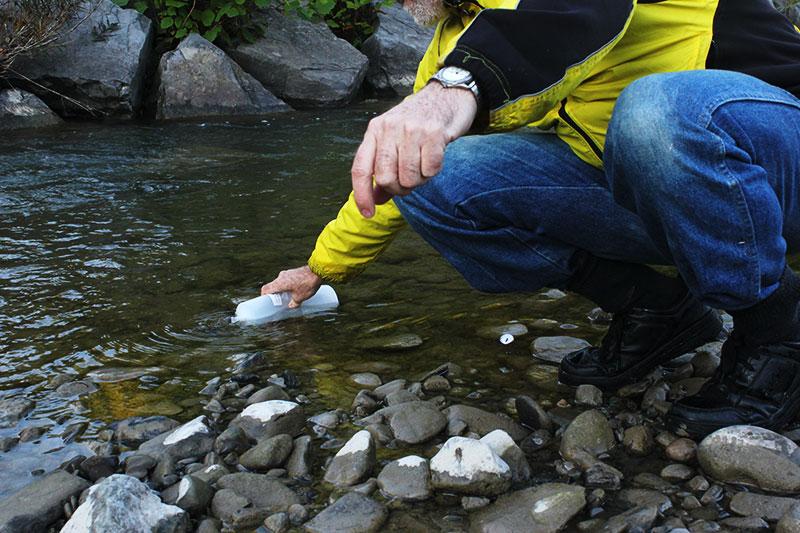Ithaca’s Water Treatment Plant is in the first stages of a renovation project for the drinking water system of the City of Ithaca, specifically to the Six Mile Creek watershed.
The city has implemented a new series of contracts, including road improvements, an overhaul of the old water pipeline infrastructure, and an additional water treatment intake plant near Third Dam.
The scheduled completion date for the water project is expected to be in the fall of 2016 said Chuck Baker, manager at the City of Ithaca Water Treatment Plant.
“The city has recently been trying to get a handle on what kind of dredging maintenance has to happen in the streams as they go through the City of Ithaca,” said Roxy Johnston, lab director for the Ithaca Water Treatment Plant and watershed coordinator for the City of Ithaca. “They are not really natural channels anymore. They’ve been channelized with concrete walls for a long time so they don’t clean out the way a natural stream would.”
Six Mile Creek is a sub-watershed of the Cayuga Lake watershed. Johnston described a watershed as all the land that drains into one body of water.
“The watershed area is probably one of the more logical units of land to work with or manage from an ecological perspective because everything is connected,” Johnston said.
While past water quality tests have proved the water has not been harmed by contaminants, a problem still remains with the level of silt in the watershed. The process of dredging watersheds is used to sift through the silt ponds and sequester it out until dried. Since the city’s cancellation of the dredging sub-contractor eight years ago, the creeks have remained without regular maintenance and the reservoirs have become clogged.
The end goal of filtration is to reach a set standard of taste, odor, and clarity Johnston said. “Right now, we have what’s called a conventional water treatment plant. We do the settling, coagulation, filtration, and then chlorination. Water comes in, there’s a quick mix of chemicals, and then there’s a slow mix during which time we inject a polymer, a sticky substance which attracts particles in the water.”
In order to keep filtration costs down, the City of Ithaca hopes the new installments in the water treatment system will counteract rising silt levels. As of last year, filtration per one thousand gallons cost $6.35 with an overall water plant budget of $1.51 million.
To monitor water quality and silt levels, annual testing takes place in the watershed four to six times a year with the help of the Community Science Institute and volunteers to ensure water levels are meeting state and federal regulations.
The Community Science Institute (CSI) organizes three different kinds of water testing annually.
“By doing [synoptic testing] we get a good snapshot of water quality,” Becky Sims, the Director of Outreach at CSI who helps organizes these tests, explained. “If you do it repeatedly over time, you can start to understand more about the watershed and how nutrients and pollutants move through it.”
Earlier in September, a synoptic water sampling took place along various points on Six Mile Creek with the help of volunteers. James Hamilton, a ten-year veteran of the water sampling process, gathered samples as well as tested flow and temperature of the water in his designated area along the creek.
“[The testing] proves that we’ve been paying attention to [Six Mile Creek], and it’s in good shape,” Hamilton said. “If we ever found a problem, we could look into it some more.”
The Community Science Institute will continue to monitor levels and water quality throughout the watershed while renovations are under way.







